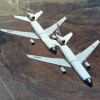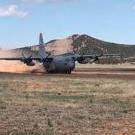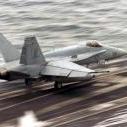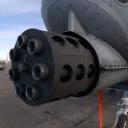Ron Fogleman.
Among other leadership considerations, the ability to organize, train, and equip the forces to carry out national strategy is dependent upon resources provided.
Sure, there are finite resources. It is the responsibility, and more importantly, the duty of the CSAF to advocate for those resources necessary to conduct the missions given.
If the necessary resources aren't provided, the CSAF has a responsibility, and more importantly, the duty to notify his civilian leaders of the consequences of the lack of those resources. Then, the missions are either reduced to meet the resources or the resources are increased to meet the demanded missions.
Failing that, the CSAF has the responsibility, and more importantly, the duty to respectfully refuse to carry out those mission knowing that the risk to the personnel under his care is thereby increased with no benefit to the nation. Having refused, in our generally grand tradition of military subordination to civilian control, the result is resignation or firing.
That tends to crimp post-uniformed service board memberships and the like...











